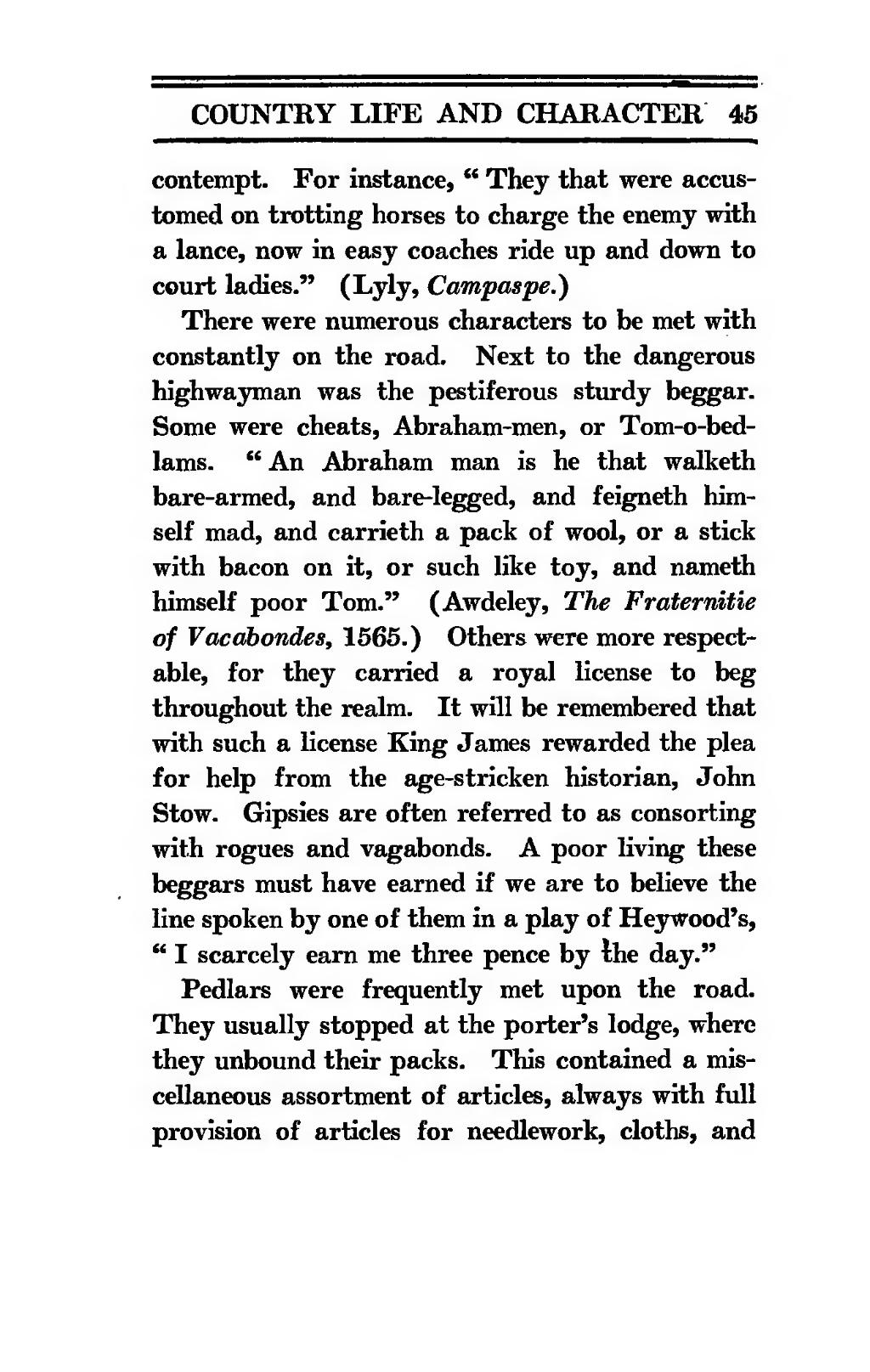contempt. For instance, "They that were accustomed on trotting horses to charge the enemy with a lance, now in easy coaches ride up and down to court ladies." (Lyly, Campaspe.)
There were numerous characters to be met with constantly on the road. Next to the dangerous highwayman was the pestiferous sturdy beggar. Some were cheats, Abraham-men, or Tom-o-bedlams. "An Abraham man is he that walketh bare-armed, and bare-legged, and feigneth himself mad, and carrieth a pack of wool, or a stick with bacon on it, or such like toy, and nameth himself poor Tom." (Awdeley, The Fraternitie of Vacabondes, 1565.) Others were more respectable, for they carried a royal license to beg throughout the realm. It will be remembered that with such a license King James rewarded the plea for help from the age-stricken historian, John Stow. Gipsies are often referred to as consorting with rogues and vagabonds. A poor living these beggars must have earned if we are to believe the line spoken by one of them in a play of Heywood's, "I scarcely earn me three pence by the day."
Pedlars were frequently met upon the road. They usually stopped at the porter's lodge, where they unbound their packs. This contained a miscellaneous assortment of articles, always with full provision of articles for needlework, cloths, and

